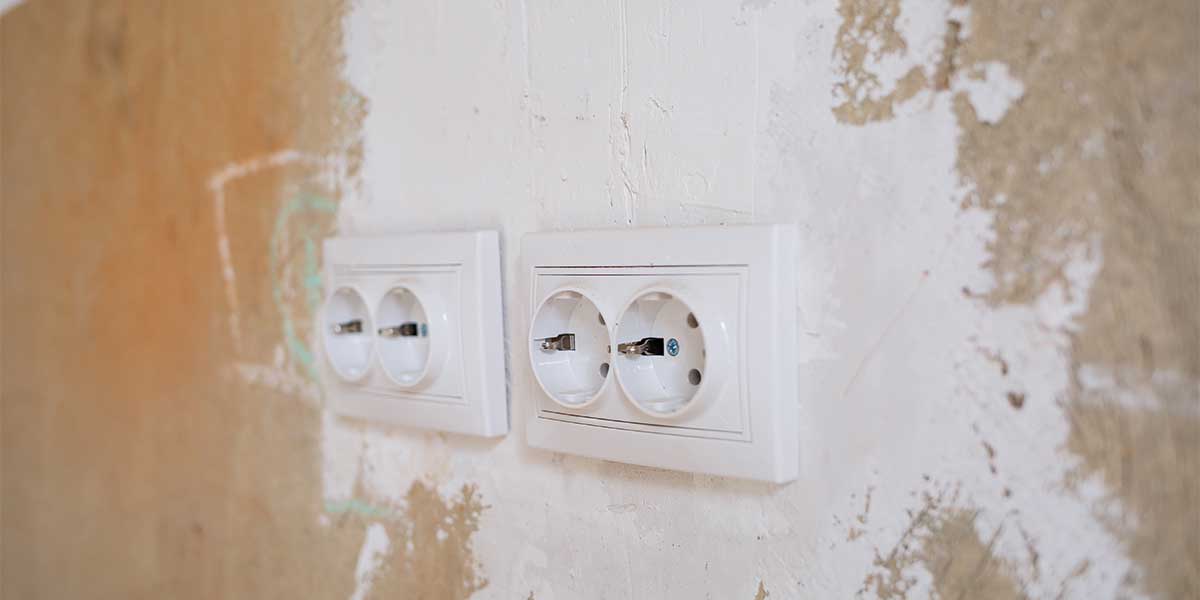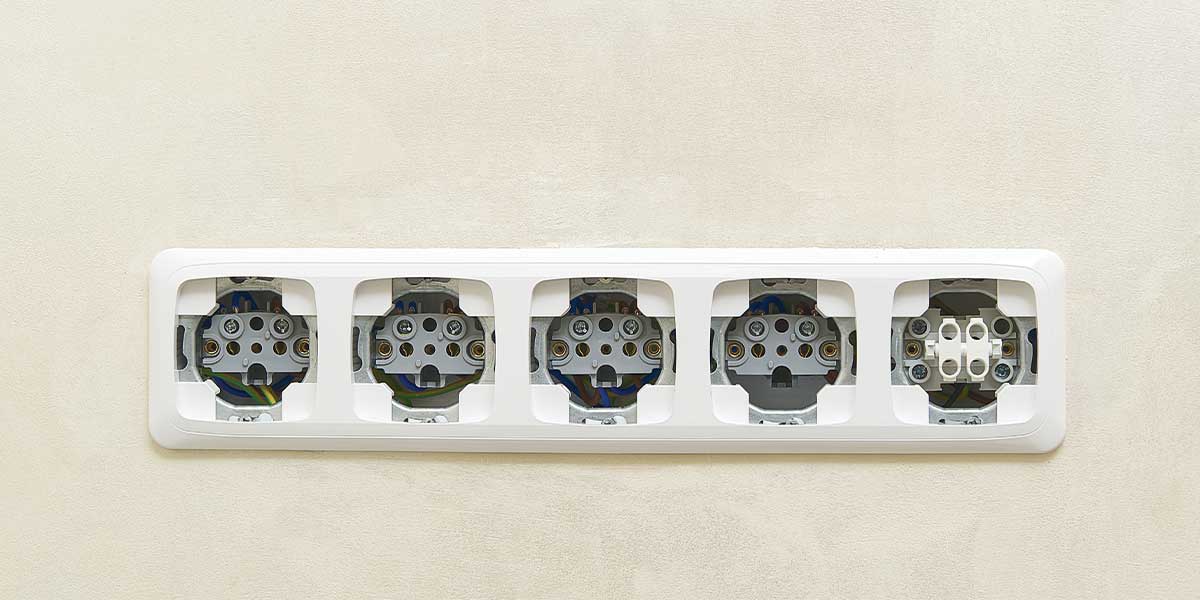Electricity powers everything from our home lights and appliances to industrial machinery. But not all power is the same. If you’ve ever wondered, what is the difference between single-phase and three-phase circuits, you’re not alone. Whether you’re a homeowner planning an upgrade or a business owner evaluating your facility’s electrical infrastructure, understanding this concept is crucial.
In this guide, the licensed professionals at Expert Electric break down the differences between single-phase and three-phase circuits, explain their practical applications, and help you make the best choice for your residential or commercial needs.
What is a Single-Phase Circuit?
A single-phase circuit delivers electricity through two wires: one live (hot) and one neutral. The electrical current flows in a single alternating wave, typically at 120V or 240V depending on your region.
Key Features of Single-Phase Circuits:
-
Simpler and more economical for homes
-
Delivers power in a single alternating cycle
-
Commonly used in residential applications
-
Usually runs smaller appliances, lighting, and heating units
Benefits of Single-Phase Power:
-
Lower installation costs
-
Simpler maintenance
-
Ideal for smaller loads
Limitations:
-
Not suitable for heavy machinery or large industrial setups
-
Less efficient over long distances
What is a Three-Phase Circuit?
A three-phase circuit uses four wires: three live wires and one neutral. It delivers three separate alternating currents that reach their peak at different times, providing a continuous, balanced power flow.
Key Features of Three-Phase Circuits:
-
Delivers more power with higher efficiency
-
Typically operates at 208V, 400V, or 480V depending on configuration
-
Used in commercial and industrial environments
Benefits of Three-Phase Power:
-
Superior energy efficiency
-
Reduced conductor size for the same power output
-
Ideal for motors, compressors, and HVAC systems
-
Provides constant, smooth power output
Limitations:
-
More complex to install and maintain
-
Higher upfront cost
-
Overkill for standard residential use
Real-World Applications
Single-Phase Circuit Uses:
-
Homes and apartments
-
Small office spaces
-
Light-duty air conditioning systems
-
Lighting and heating loads
Three-Phase Circuit Uses:
-
Manufacturing facilities
-
Warehouses and data centers
-
Elevators and large HVAC systems
-
High-capacity electric vehicle charging stations
Why Does the Difference Matter?
Knowing what is the difference between single-phase and three-phase circuits helps ensure the right power infrastructure is installed for your needs. Choosing the wrong setup can lead to:
-
Overloaded circuits
-
Frequent tripping or outages
-
Equipment inefficiencies or failures
-
Higher energy bills
This decision impacts long-term performance, safety, and energy consumption so it’s best to consult with qualified professionals like Expert Electric to assess your specific requirements.

How to Know Which System You Have
Not sure whether your property uses a single-phase or three-phase setup? Look at your electrical panel or meter:
-
Single-Phase: Usually two poles or two wires entering the panel
-
Three-Phase: Three poles or three wires entering the panel, often with labeled breakers for each phase
Still unsure? Give us a call at 604-681-8338, and we’ll walk you through it or send a licensed electrician to assess your system.
Cost Considerations
Installation Costs:
-
Single-Phase: Lower materials and labor costs
-
Three-Phase: Higher due to complexity and extra wiring
Operational Costs:
-
Single-Phase: Higher per watt-hour if powering large equipment
-
Three-Phase: Lower operational costs for industrial loads
Upgrade Costs:
Upgrading from single-phase to three-phase can be costly, depending on:
-
Your current infrastructure
-
Utility provider regulations
-
Distance to the nearest three-phase source
Always consult an expert before making the leap.
Safety and Performance: Which is More Reliable?
Both systems are reliable when properly maintained. However, three-phase systems offer better power stability and are less prone to voltage drops, especially under heavy loads.
Properly maintained circuits reduce the risk of:
- Overheating wires
- Equipment damage
- Electrical fires
That’s why Expert Electric offers full-service electrical inspections, maintenance plans, and circuit evaluations for homeowners and businesses.
FAQs
What is the main advantage of a three-phase circuit over a single-phase circuit?
Three-phase circuits provide continuous power flow, allowing for better efficiency and smoother operation of high-load equipment.
Can I upgrade my home from single-phase to three-phase?
Yes, but it depends on your area’s power grid and the utility provider. The upgrade is more common in rural or mixed-use properties and should be evaluated by a licensed electrician.
Are three-phase circuits safer than single-phase?
Both systems are safe when properly installed. However, three-phase circuits handle high-demand loads more reliably, reducing risks from overloading or overheating.
Do electric vehicles benefit from three-phase circuits?
Yes. Three-phase charging stations can reduce charging time significantly for electric vehicles compared to single-phase outlets.
How can Expert Electric help?
We offer comprehensive evaluations to determine which system fits your needs, and provide upgrades, repairs, and routine maintenance, always performed by certified professionals.
Final Thought
Understanding what is the difference between single-phase and three-phase circuits is more than just electrical jargon, it’s the key to safety, efficiency, and performance in your home or business. Whether you’re renovating, building, or upgrading your electrical systems, choosing the right circuit type can save you time, money, and headaches.
At Expert Electric, we bring decades of experience and dedication to every project. We evaluate, design, install, and maintain systems tailored to your needs. Don’t leave something this important to chance, contact us today for expert guidance.
Contact Expert Electric
Want personalized advice about your electrical circuit system? Our licensed electricians are here to help.
📞 Call Us: 604-681-8338
📧 Email Us: info@expertelectric.ca
Your safety and satisfaction are our top priorities. Whether you need help upgrading your system or just have questions, Expert Electric is your trusted partner in British Columbia’s Lower Mainland.


